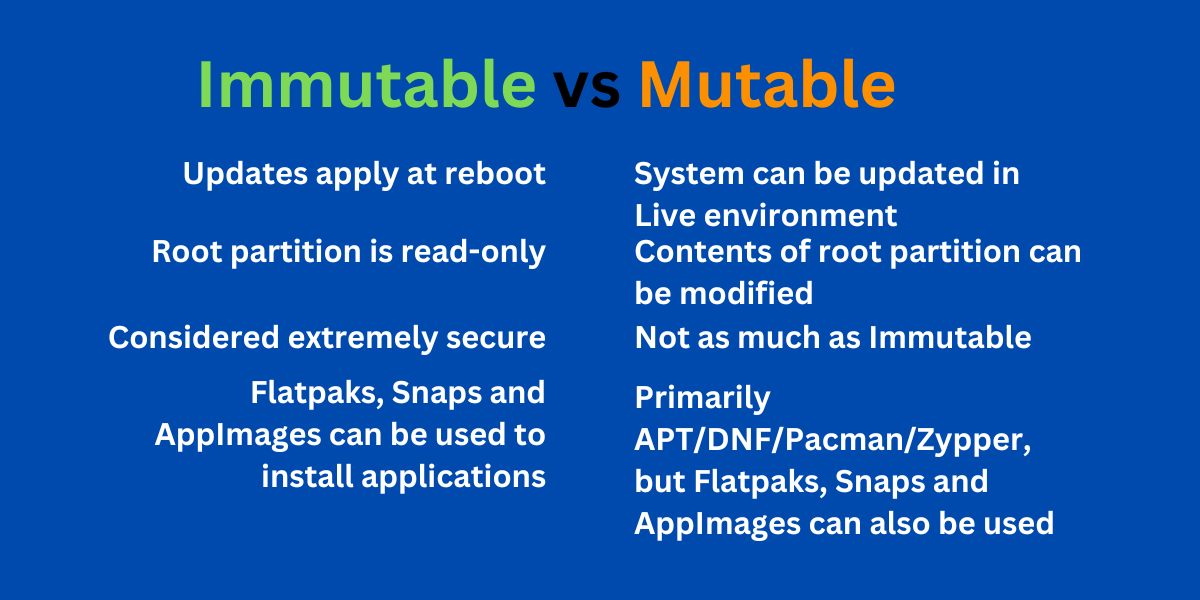this post was submitted on 13 Jan 2025
347 points (93.9% liked)
Linux
49150 readers
1176 users here now
From Wikipedia, the free encyclopedia
Linux is a family of open source Unix-like operating systems based on the Linux kernel, an operating system kernel first released on September 17, 1991 by Linus Torvalds. Linux is typically packaged in a Linux distribution (or distro for short).
Distributions include the Linux kernel and supporting system software and libraries, many of which are provided by the GNU Project. Many Linux distributions use the word "Linux" in their name, but the Free Software Foundation uses the name GNU/Linux to emphasize the importance of GNU software, causing some controversy.
Rules
- Posts must be relevant to operating systems running the Linux kernel. GNU/Linux or otherwise.
- No misinformation
- No NSFW content
- No hate speech, bigotry, etc
Related Communities
Community icon by Alpár-Etele Méder, licensed under CC BY 3.0
founded 5 years ago
MODERATORS
you are viewing a single comment's thread
view the rest of the comments
view the rest of the comments

But the more apps the more the dedup is saving space
Not when every app decides to use a different point version of the same damn platform.
"Hello Mr. Application. I see you'd like to use the Freedesktop-SDK 23.08.27
"Oh...well hello other application. What's this? You want to use Freedesktop-SDK 24.08.10? Well....I guess so..."
Edited to add: Yes, I know that flatpaks will upgrade to use updated platforms. But it doesn't automatically remove the old one, forcing you to have to run flatpak remove --unused every week just to keep your drive clean. That's hardly user friendly for the average person.
I had a systemd unit that ran it weekly after the update one ran. I feel like the default behavior though should be automatic purge old unused runtimes though too. I don't see why that wouldn't the case to me.
I've even gone so far as wanting to force run time changes underneath the packs because of Caves and such, but thats my niche and puts security over function.
Definitely not a free lunch sys admin wise, but it is still a marked improvement over native apps 98% of the time for me.
The average person has a 1tb+ drive and doesn't care about a few hundred megabytes of bloat in a partition they will never look at. If someone is switching from Windows, every app having its dependencies self contained is mostly normal anyway (aside from the occasional system provided dll). The only people likely to care about removing old flatpak platforms are the kind of people who don't mind running the command to remove them.
The average person definitely doesn't have a 1tb drive.
61% of steam users have 1tb or more total hard drive space.
https://store.steampowered.com/hwsurvey/Steam-Hardware-Software-Survey-Welcome-to-Steam
Steam users are not the "average user"... they are the "average gamer".
I don't think Steam users really represent the average person...
The average person doesn't own a computer anymore, but I think steam users are pretty representative of people who want to use the OS that markets itself as "The next generation of Linux gaming"
The average person has a phone, with 128gb of storage.
The typical laptop I deal with have 512gb ssd drives.
The typical desktop in a corporate environment is 256gb or 512gb.
1tb drives are very much not "average".
That's a very fair point. But it's still annoying.